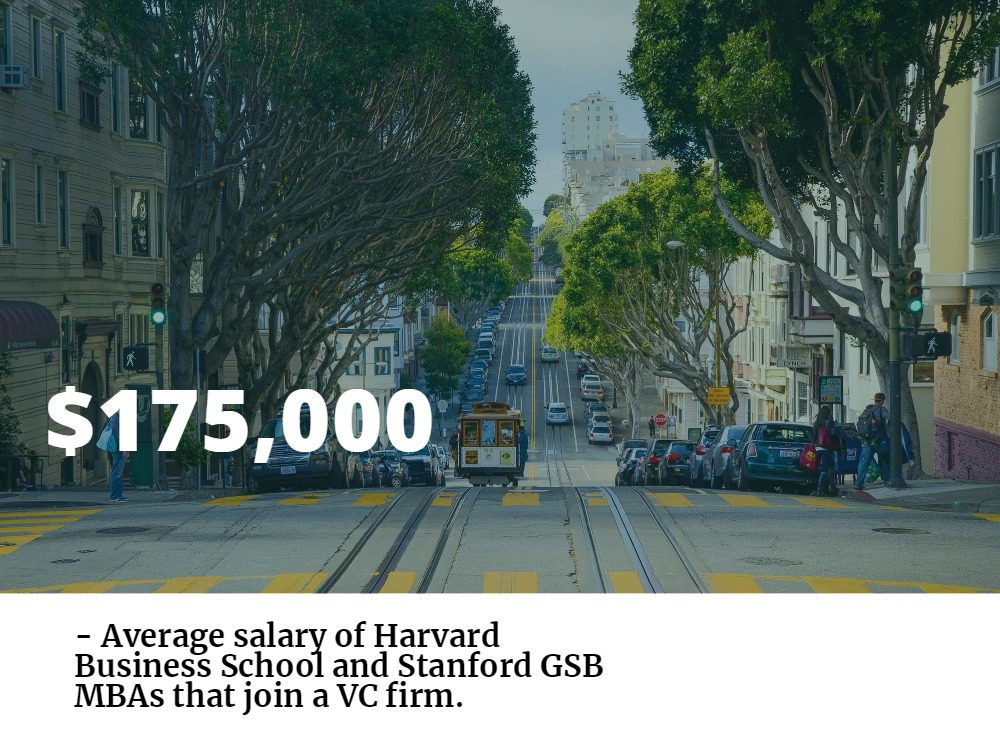U. Chicago and Northwestern Deadlines, and More – Chicago News

Let’s explore some of the most interesting stories that have emerged from Chicago business schools this week.
University of Chicago and Northwestern University Reveal 2018-19 MBA Deadlines – MetroMBA
Both of Chicago’s top-tier business schools—Chicago Booth and Northwestern Kellogg—have announced deadlines for the upcoming MBA application season, starting this fall and extending into April of 2019.

Northwestern Kellogg MBA deadlines for 2018-19 begin Sep. 19, 2018 / Photo via northwestern.edu
How Superstition Changes the Way We Make Decisions – Kellogg Insight
Northwestern University Kellogg School of Management professors of marketing Ping Dong and Aparna Labroo recently published new research that explored the impact of superstitious actions on everyday decisions in an edition of Kellogg Insight.
According to the article, they were specifically interested in understanding how they “changed the way we calculate our odds of success or failure when deciding whether to do something risky.”
Labroo uses their study as an opportunity to suck the metaphysical life out of superstitious actions: “We can think about all kinds of good things happening and all kinds of bad things happening, but thinking about the probability and trying to compute expected value is less natural. It takes a little more effort.”
You can check out the full article here.
Could Walk-In Clinics Ease the Opioid Crisis? – Booth Chicago News
New York physician and psychiatrist Dr. Tamir Aldad was frustrated by the “boomerang” effect he experienced with the opioid addicts he treated for “substance use disorder, depression, bipolar disorder, post-traumatic stress disorder, or potential risk of self-harm,” who returned to the “ER in a couple of weeks with the same or worse problem than they came in for in the first place.”
After Dr. Aldad enrolled in Chicago Booth’s Executive MBA program, he launched the Mindful Urgent Care startup, a “walk-in psychiatric clinic designed to … increase mental health access and speed quality and affordable treatment to a population of patients with unmet needs.” Dr. Aldad and his teammates placed first in Booth’s Global New Venture Challenge this past April.
Aldad writes, “In value-based care, patient outcomes really matter. What we are seeing now is that patients in mental health are costing more and more. If a patient winds up in a hospital because they couldn’t get in to their doctor’s office or have a medication refilled, the healthcare costs escalate. We have an opioid crisis, and we have to proactively work to find ways to prevent mental illness from getting worse.”
Read more about Aldad’s experience in the Booth EMBA program here.
Quinlan Alum Leads Through Service – Quinlan School of Business Blog
The Quinlan School of Business at Chicago’s Loyola University recently interviewed alum Illiana Alvarenga BBA ’14, BA ’14 about Quinlan prepared her for a multi-faceted career path that includes a healthy dose of service and service leadership as part of her position as the Chicago chair of UNICEF’s Next Generation Initiative.
“It was at Loyola that I strengthened my love for giving back. For me, Quinlan strengthened a foundation of being strategic, but also encouraged us to always keep in mind what’s good for our communities,” Alvarenga writes.
This year Alvarenga traveled to South Africa with UNICEF to figure out how they “can leverage technology to help with programs to stop illness through increased handwashing, help girls excel in STEM-based careers, and more.”
Alvarenga also works as a competitive intelligence senior associate at JP Morgan Chase, where she focuses on “supporting the business in understanding emerging consumer behavior trends, the changing payments landscape, digital and mobile initiatives in financial services, and new developments in financial technology.”
You can read the full Quinlan interview here.
What are the Best MBA Programs by Specialty?

Each year, U.S. News and World Report looks at the top business schools around the country to decide which offer the best MBA programs. The goal is to help MBA candidates most effectively choose the best MBA degree to help them achieve their goals based on their interests and strengths. The problem is that there are hundreds of programs and it can be difficult to weed out all the noise to get to the information that you want most.
That’s why the U.S. News and World Report decided to break down all of their findings into a more easily consumable ranking. They outlined the top MBA programs by discipline to help you quickly and easily find the school you’re looking for. Each of the schools on the list was chosen based on alumni interviews, schools statistics, research data, and more.
We’ve broken down the results below along with crucial information about each school listed and where you can learn more information.
Chicago Booth MBA Deadlines Have Arrived

The newest batch of University of Chicago MBA deadline dates have been announced for the Booth School of Business, going in to the 2018-19 academic season.
Round One
Deadlines: September 27, 2018
Notifications: December 6, 2018
Round Two
Deadlines: January 3, 2019
Notifications: March 21, 2019
Round Three
Deadlines: April 4, 2019
Notifications: May 16, 2019
Head over to the official Chicago Booth website for more application information.
Chicago Booth Alum Donates $10 Mil to Support Priority Initiatives

University of Chicago Booth School of Business alumnus Dave Liguang Chenn (MBA ’00) recently donated $10 million to support several priority initiatives at Booth. Chenn’s donation will go toward Booth’s new Hong Kong Center, scholarships for both graduate and undergraduate students, and the UChicago Innovation Fund managed by the Polsky Center for Entrepreneurship and Innovation.
Booth Dean Madhav Rajan expressed deep gratitude for Chenn’s substantial donation. “This generous gift will have a transformational and lasting impact on areas of great need at the College and of high priority at the university and Chicago Booth.”

Dave Liguang Chenn, Chicago Booth MBA, ’00
Here’s how Booth plans to divvy up Chenn’s $10 million donation:
- $3 Million to the Hong Kong Center: The University of Chicago Center in Hong Kong is home to the Booth Executive MBA program in Asia, multiple study abroad programs, the Hong Kong Jockey Club Programme on Social Innovation, and various research projects. When the Center officially opens in July 2018, one of the premier spaces at the Center will be named after Chenn.
- $4 Million to Scholarships: Specifically, $2 million will go toward scholarships for full-time MBA students while an additional $2 million will go toward the Odyssey Scholarship Program for undergraduate students. In recognition, a house in the Woodlawn Residential Commons will be named after Chenn when it opens in the fall of 2020.
- $3 Million to Innovation Fund: The final $3 million will go toward the UChicago Innovation Fund, which provides proof-of-concept funding to university-affiliated ventures and technology. These funds will provide early capital for ideas with the most disruptive potential.
Chenn explained the impetus behind his generosity: “Since my graduation from Chicago Booth many years ago, I have always appreciated the values and the principles that had been taught in this fine institution and the many great lifelong friends I had met there. I hope my contributions will help the university and Booth to attract the best students from around the world, and enhance their global impact, particularly in Asia, with the new campus in Hong Kong.”
Read the press release to learn more about how the University of Chicago and Booth School of Business will put Chenn’s money to use.
This article has been edited and republished with permissions from our sister site, Clear Admit.
Northwestern Investing in Green Companies, and More – Chicago News

Let’s explore some of the most interesting stories that have emerged from Chicago business schools this week.
The Case for Investing in Green Companies – Kellogg Insight
Northwestern University Kellogg School of Management professor of finance Ravi Jagannathan recently co-authored a new paper, which found that the more companies adopted greener practices, as defined by environmental, social, and governance (ESG) criteria, the more adaptable they are to changes in environmental regulations and the higher likelihood their share prices could increase.
Jagannathan and his co-authors stressed the importance of environmental risk, “particularly in the age of social media.”
He adds, “Today’s consumers can communicate and mobilize much faster—for instance, to shame a company for its unsustainable practices. Social media has made it easy to identify violators. If you invest in companies with shady environmental practices, you may be caught by surprise.”
He also adds, “Companies that pollute more now will be adversely affected by more stringent environmental laws coming into play and by alternative technologies spurred by environmental concerns.”
“What is standing in the way of coal is not regulation. You need to worry about alternative technologies catching up in response to consumers’ concerns.”
Jagannathan advises companies to “prepare for ESG-related changes [or they] will lose out in the long run.”
Read more about Jagannathan and his team’s research here.
Is There an Expert in the House? – Chicago Booth News
Three University of Chicago Booth School of Business entrepreneurs recently participated in a lunchtime panel, “The Cross-Disciplinary Formula for a Successful Venture,” held at the Harper Center in Hyde Park as part of the Polsky Center for Entrepreneurship and Innovation’s Innovation Fest.
The panelists discussed the impact that Booth community resources had on their startups and use the talk as an opportunity to offer advice to aspiring entrepreneurs on financing, product development, marketing, and personal growth.
ExplORer Surgical CEO and co-founder Jennifer Fried, MBA ’15 whose startup functions as a “a new digital playbook for operating personnel,” wrote about the “many cross disciplinary programs [it] took advantage of,” including the Polsky Center and the UChicago Startup Investment program.
Ascent Technologies co-founder Brian Clark, MBA ’17, whose firm “helps companies build and manage regulation compliance programs,” characterized this “sense of collectivism and community, [which] allows new ventures to thrive and grow.”
Tovala co-founder David Rabie, MBA, ’15, whose food technology company “pairs a steam-based oven with a meal-kit subscription service,” unpacked the challenges of bringing a new product to market.
“We’re trying to fundamentally change the way people think about eating at home. We have customers as young as 20 and as old as 85, but our real target is young families. It’s a massive market and we’re still trying to figure out the best way to reach these customers. We haven’t cracked that nut yet.”
Glean more insights from Chicago Booth entrepreneurs here.
Business and the Cycle of Nature – Quinlan School of Business Blog
Loyola Quinlan professor of sustainable business management Nancy E. Landrum, Ph.D., recently wrote an article for the Quinlan blog that “outlines how businesses can learn from nature’s 3.8 billion years of survival.”
She writes:
“Businesses generally use resources in a more linear fashion: we take resources from nature—water, plants, animals, minerals—and we transform them into products to sell. The products are then used and discarded. This has led to a depletion of resources and an abundance of waste.”
“But it can be quite simple if approached from the lessons of the cycles of nature: renewable, without waste, and conducive to life. If every company’s actions followed these simple guidelines learned from nature’s 3.8 billion years of survival, then it becomes clear that the company is creating conditions for its own survival.”
Read Dr. Landrum’s entire article here.
Hot MBA Jobs: Venture Capital Associate

If you’ve ever used an app like Uber or Snapchat, odds are you’ve benefited from the work of a venture capital associate. Through skills like financial modeling, evaluations, and a little bit of luck, venture capital associates find ‘the next big thing’ and provide the money to make it happen. And though not all of these skills can be taught, top venture capital firms are looking to business programs to find the perfect candidate.
For students looking to join the venture capital industry, the path isn’t always an easy one. The level of experience required in the field means that very few students find venture capital associate positions straight out of their MBA programs. This doesn’t seem to deter those who are ready to work for it, however. Last year, private equity was ranked as the second-biggest employer for MBA graduates at the Harvard Business School.
Before you get started on the road to becoming a venture capital associate, let’s take a look at what the path to your dream job might look like.
The Venture Capitalist Job Role
Venture capital (VC) firms take on the risky but often lucrative job of searching the startup world for the next big thing. In exchange for providing capital infusions to startup companies in the early stages of their business, venture capitalists receive both oversight and ownership in the company.
For associates at venture capital firms, the job primarily involves sourcing new deals—setting up meetings with entrepreneurs and companies to find prospective investments—and supporting existing ones. As most roles in financial analysis go, VC associates are responsible for supporting all aspects of an investment, from the initial sourcing, modeling, and execution of a deal.
The exact type of work done by a VC associate may be determined by the type of for it is. For firms more focused on funding startups in their early stages, the associates work may be more concentrated on sourcing, while firms working more on late-stage financing will likely require more diligence and modeling from its associates.
Venture Capitalist Salary
While the exact roles of a venture capital associate may vary widely with the firm and its specialization, the general trend shows VC work to be an incredibly lucrative career. In 2016, graduates from top MBA programs like Stanford GSB and Harvard Business School joined VC firms at an average salary of $175,000.
According to Payscale, the average salary across all education levels for an associate at a venture capital firm is $92,067. The level of experience can make a big difference when it comes to the venture capital associate role, as well. Mid-career professionals in this role make on average 24 percent more than the national average, and experienced professionals up to 51 percent more.

Where Do Venture Capital Associates Work?
Venture capital firms can be found throughout the world in a variety of fields, leaving a wide range of opportunities open to up and coming VC associates. Certainly, studying and working near concentrated start up hubs like the Silicon Valley in California or the UK’s Silicon Fen can help boost an MBAs ability to get their foot in the door.
Still, a quick look at open venture capital associate positions open at the time of writing reveal diverse offerings spread throughout the country, from Palo Alto, CA to Philadelphia, PA to Durham, NC. MBAs looking to pursue a role in venture capitalism may also look for roles that allow them to pursue other areas of business they are passionate about, since VC firms are typically specialized in the type of startup they will invest in, be it fintech, health science, and other various fields.
Some of the world’s top corporations also have venture capital firms that will invest in companies related to their work. This includes companies like Google, Intel, Salesforce, Johnson & Johnson, and more.
The Venture Capital Associate Education
VC firms looking for associates are likely looking for MBAs who have had some previous experience on the workforce. While it’s not impossible for those without MBA degrees to begin as associates, opportunities for advancement to a partner level role are typically unusual without one. Typically, pre-MBA associates are expected to only work two to three years at a firm and then move on.
For post-MBA associates, it’s expected that these individuals will be working towards a partner level position. Firms will be looking for candidates with strong records in analysis who can demonstrate a deep understanding of markets and industries. Given that even MBA graduates will be expected to have a certain level of experience before joining a VC firm, these roles can be incredibly competitive. On-campus recruiting is uncommon for these firms, and typically only graduates from top level MBA programs are recruited to these positions. Basically, if you are determined to enter the venture capital industry, you will not only need an MBA education- you will need to prove you have the best MBA education.
The Top VC MBA Programs
To join the incredibly competitive field of Venture Capitalism, MBA graduates need a demonstrated record of financial analysis skills and a degree with the reputation to back it up. Some of the top schools for those looking to enter the VC or private equity fields overlap with some of the highest ranked MBA programs in the world. Schools that have strong relationships with investment banks and those with strong finance programs will likely offer the most opportunities for students looking for careers as VC associates. Some of the top schools for the field are listed below:
- Booth School of Business – University of Chicago: The full-time MBA program at University of Chicago’s Booth School of Business has a strong focus on venture capital and private equity through the Polsky Center for Entrepreneurship. The program provides strong networking opportunities for their MBAs through student organizations like the Entrepreneurship and Venture Capital (EVP) Group. The group offers career development, networking, activities, and speakers covering the most important topics in venture capital today.
- Kellogg School of Management – Northwestern University: MBA students at the Kellogg School of Management will find a huge focus on venture capitalism through the school’s Heizer Center for Private Equity and Venture Capital. Part of the center is the school’s Venture Lab, an experiential learning course that allows students hands-on experience with a quarter-long internship at venture funds, incubators or start-ups.
- Harvard Business School: The top-ranked Harvard Business School has one of the highest success rates in the world for students interested in venture capitalism. In 2015, roughly 14 percent of HBS graduates went into positions at private equity or venture capital firms. Organizations like the Venture Capital & Private Equity Club– which provides a speaker series, career treks, and an annual conference—allows students to get acquainted with the industry long before graduation.
